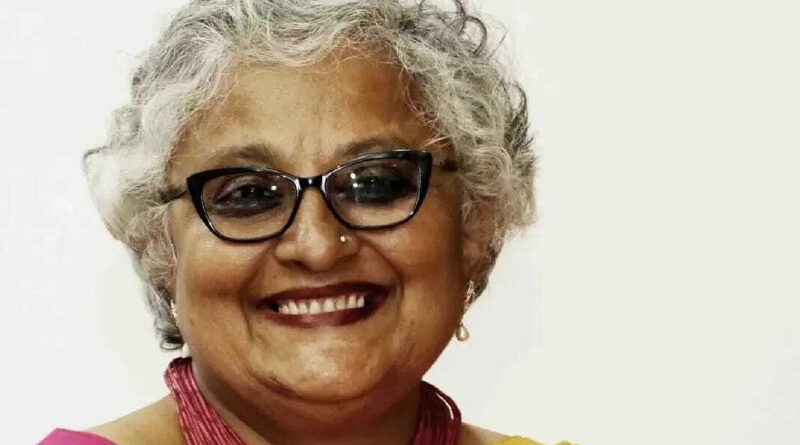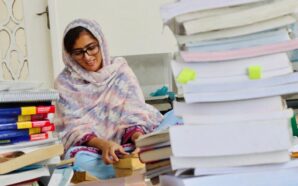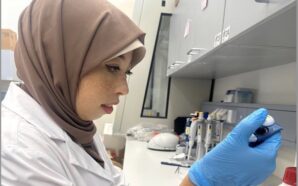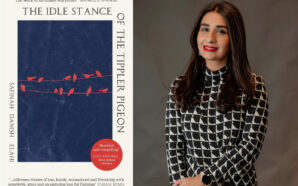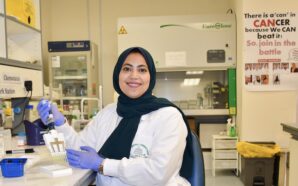We can find inspiration anywhere and everywhere. Sometimes it is just a person, a sentence, or a moment of silence. Sulagna Mukhopadhyay is one such rare encounter. Her multi-hyphenate career as a translator-teacher-dancer-writer has the potential to inspire generations.
From Kolkata, she zoomed into my home in Karachi, and we expanded our discussion to her life, career, and passion for promoting cultural pluralism through translations.
Profile Sulagna Mukhopadhyay has many feathers in her cap. She is an experienced translator, freelance journalist, trained Bharatanatyam dancer, a full-time teacher, a theatre actress, and an author of Bengali and German languages. Being born and raised in Kolkata, India. It was her mother who encouraged her to pursue Bharatanatyam. "I wasn’t a quiet girl, so the best option for her is to put me in a dance school." She shares while reminiscing about her mother. Now, she enjoys teaching German as a Guest Lecturer at Jadavpur University and works as a freelance dance critic for two leading English-language dailies, The Telegraph and The Statesman. She also contributes to various Bengali and English magazines on the reunification of Germany and its impact on contemporary German literary texts by authors such as Christa Wolf. In 2019, Sulagna received a grant from the Berlin Literary Colloquium for participating in a translation workshop on lyrical poems. Her debut as a translator of literary books began with Kathrin Schmidt's poetry collection Fluβbild mit Engel. Recently, she wrote her first German short story on dementia, Mama, ich bin da, which has been published in Experimenta-September 2022 issue.
To us you are Sulagna Mukhopadhyay, a translator, a teacher, a journalist, a classical dancer and dance critic, an author, and an activist… but for you who is Sulagna Mukhopadhyay?
I would rather look at it in a different way and say that I am an amalgamation of all the attributes you have referred to here. I began learning one of the Indian Classical dance forms Bharatnatyam at a very tender age. I was not a quiet and shy girl, so my mother thought it best to put me in a dance school. I was always referred to as a tom boy.
Tell us something about your inspirations about dance, literature, and theatre?
While majoring in Comparative Literature, I developed a keen interest in Gender Studies and Creative Writing. This was my window to the literary works of the world. Then, I started learning the German language both at the university and at the Goethe-Institut/Max Mueller Bhavan Kolkata. It was at that time, a friend of mine suggested me to join a Bengali Theatre Group Sangbarta, who were coincidentally doing collage works of German authors from the 18th and 19th centuries. I wanted to earn pocket money, so I started writing for English Daily Newspapers as a dance critic. All these together gave me the impetus to become a translator.
You never limit yourself to a field. Contrary, you embrace your creativity as a way of life and not just as a hobby. What inspires you?
My mother always supported me. She was a singer and wanted me to dance, but my creativity bloomed when I met my husband. He motivates me to pursue journalism, and the German language. Literature of the world broadens my horizons.
What were some of the challenges you faced as a young woman in South Asian society? How did you overcome them? Do you think some of these are still haunting women in their respective fields?
I would put it as challenges faced by me as a young woman in the Indian Society. My mother was the matriarch of the family. She has this positive and powerful personality which still gives me the strength to hold my ground in every situation. I studied in a co-education school system; I choose what I want to learn and embrace my creativity to the fullest. But I married into a conservative family, where cultural activities like dance, and acting were not something pursued as a profession or a hobby. They stopped me from dancing. So, there was frustration, an agony. I could see the pain in my mother’s eye also. But she never expresses it. She knew my husband was on my side. But now, I can do anything, and everything with the support of my husband and son.
Coming to the next part of the question, I will speak about pan India. It was not easy to be a working woman after marriage. It’s unfortunate that these hindrances, which I have faced 30-35 years back, still exist and women are still not able to fight for their rights and these social taboos are still attached to their existence.
Urban women have become more conscious about their rights. They are even exerting their rights. But there are a lot of new challenges, especially for rural women.
Ghalib once said, “Kolkata is a world where everything except a remedy for death is available”. Anyone who knows Ghalib, knows about his love for Kolkata. But most of us know about Kolkata because we watched Tagore’s work via film adaptations. How different is it than mainstream representation?
The Kolkata, which Ghalib had described isn’t the same. The historical city and the first official capital of the British colonists has undergone an era of evolution. Now, Kolkata is inhabited by three strata of people- the rich, the middle class, and the poor. Even when you see Satyajit Ray’s films based on Tagore’s works, you will find an era long gone, it does not resemble the modern Kolkata surrounded by high rises, malls, tubes, and flyovers.
How does it feel to grow up in a historical city?
I was born and raised in the city, which was once called Calcutta. I feel proud to be a part of it. It still has many historical buildings found in different parts of the city. Some of them were built during the Islamic period, some during British rule and then there are some which were built by the rich Bengalis. There is a striking difference between the East, West, North, and Southern parts of Kolkata. I live in the southern part of the city, which was developed much later and gradually, that kicked off during the mid-19th century.
We are living in a world of AI inspired ideas and language skills, what do you think about translation tools?
My students at Jadavpur University use AI tools, especially for the translation course. But it is recognizable. Yes, it can help you translate something, but it can never replace translators. A translator understands evolving emotions, has language expertise, and is aware of the cultural impact on languages. I believe that these tools are here to help and not to overtake.
What role can languages play in promoting diversity, co-existence, and cultural pluralism?
If we want to grow as a global community, we need to embrace regional languages. India is itself a multilingual and multicultural country. So, each Indian child knows at least three languages- his/her mother tongue, English and any one other language depending on the state the child lives in. The school curriculum in India is again varied. Now the Central Board requires a child to learn a foreign language like German, French, Chinese (Mandarin), Spanish etc. from Grade V or VI. Since I am from Bengal, I would rather concentrate on the language of this state. The official language of this state is Bangla or Bengali. There are several districts under this state and each district has its own distinct dialect. Despite being Bengali, we need to understand the dialects to a certain extent for communication purposes. I feel it is very important to embrace the regional languages. Otherwise, human communication will come to a halt.
What is the significance of embracing translated work from all over the world in a society?
The educated Indians tend to read a book either in its original language (if the language is known to him/her) or else read it in English. But there is another educated class in our society, who love to read a text in their mother tongue. Had there been no translation, the world would have remained in the dark and speakers of one language would never have had the opportunity to know what’s happening in other corners of the earth. For me it would have been like ceasing to live.
Tell us more about your German language short story on dementia, Mama, ich bin da.
During COVID, especially during the second wave, I lost many dear friends, I started feeling the threat of death. There was a lady residing in the same building, who was suffering from dementia and in her final stage she could not even recognise her daughter, who took care of her. These two issues impacted me to a large extent, and I penned this short story. Rűdiger Heins, a friend from Germany runs a web magazine called experimenta.de.
What is more adventurous, writing a story or translation?
Translation has always been my passion, and I enjoy doing it. Writing does not come naturally to me. Though, I write short pieces on given themes to read in the book club to my friends.
Tell us about your Book Club?
Yes, we have a Book Club, which we call Book & Grub Club. We meet twice a month on alternate Saturdays.
How important is it to promote networking between women in the Global South? What can we achieve with cross-cultural interaction?
Such networking helps us to understand women’s issues across the globe, promote partnership and encourage everyone to be mindful of diversity and inclusivity. For me, connecting to the women of the world is an opportunity that will narrow down the gaps and perhaps build a far more inclusive and diverse world than ever.
Ananke’s Woman in Literature Festival is a platform for women. Once a year, inspiring women get together without the barriers of geographical and political limitations and discuss issues relevant to all. How important is it to provide such a platform to women? Do you think it has the potential to inspire the younger generation for better understanding of the world we live in?
It is a need of the hour to exchange ideas and extend help to fellow women and empower each other. But I would like to mention one thing: We as women should protest and take legal actions against abusive people and support each other in raising our voices against injustice. But it is not men versus women. Everyone deserves respect, regardless of their gender.
Only the future will say whether such platforms will help pave the way for the younger generation. We just ought to play our part with respect and honesty.
How does literature inspire you over the years?
Literature helps me find my imaginative power. It helps me to acquire knowledge about other cultures, helps me to develop my language skill which I require not only in writing but also as a teacher.
Tell us about your inspiration from the literary world.
Besides Rabindranath Tagore, women Bengali writers like Ashapurna Devi, Mahasweta Devi, Pratibha Basu, and Navaneeta Dev Sen have inspired me. Some other literary figures I admire are Virginia Woolf, Tony Morrison, Maya Angelou, Doris Lessing, Christa Wolf, and many more. Their works have stirred my interest in Gender Studies.
Our research says that you are working on Christa Wolf’s Der geteilte Himmel (The Divided Heaven). What inspired you to take this 1963 novel as your next project? Is it still relevant to our society in some ways?
Partition and its aftermath intrigue me a lot. Besides, this was the first German book presented to me by a German friend by the wall of Berlin. Then, gradually, I read a few more books by her and interviewed her in Germany in 2001. So, it was my dream project to translate this work, at least, as it has the pains and agonies of people after the partition.
Tell us about your other projects?
Besides Sun Tzu’s The Art of War, I am working on the Bengali translation of two German novels. One is by Melinda Nadj Abonji, a Hungarian-Swiss author, and another is Die Freiheit, Frei Zu Sein by Hannah Ahrendt.
You said, “without translation, we will be living in a world of silence.” If translation has given you a voice, what do you want to say?
Translation has given me an identity in West Bengal and Germany. It is like exchanging ideas among different cultures of the world. There should be more initiatives providing financial support for translators.
Recommend us a reading list.
I would like to suggest a few Bengali books which are translated into English:
- Tithidore by Buddhadeva Bose
Translated as When the Time is Right by Arunava Sinha - Pratham Pratisruti by Ashnapurna Debi
Translated as The First Promise by Indira Chowdhury - Dalit Kotha: The Subaltern Voice in a Bengali Woman’s Narratives by Manju Bala
Translators: Saddam Saikh, Tarik Anowar
Nuzhat Nisar is an academic writer, editor, and translator. With over ten years of editorial experience, she is currently associated with Paramount Books as an editor, working on school textbooks and curricula. She studied Urdu, Mass Communication, and Education at the University of Karachi and has a Master’s degree in Political Science. She believes in promoting regional languages and equal opportunities in education and an avid supporter of equal rights for women. She also contributes to digital platforms as an independent journalist.
@NuzhatNisar (Twitter)
nuzhat_nisar10 (Instagram)




